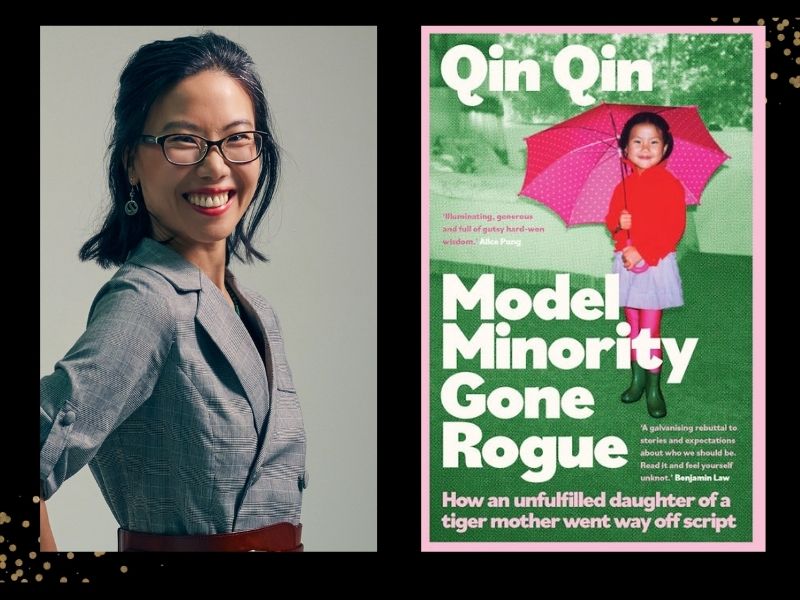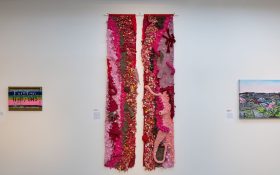Written from an East Asian perspective, Qin Qin’s Model Minority Gone Rogue will strike a chord with anyone who has lived under the weight of other people’s expectations and the ensuing struggle to find a sense of self and belonging.
Bold, honest and uncomfortably raw in parts, this heartbreaking yet hopeful memoir follows the journey of a first-generation Chinese Australian who spent many of her younger years trying to be a “good Asian daughter”, only to break free, get completely lost (aka go rogue) and then begin the painful journey towards self-love and acceptance.
After a brief history and backstory about her family and schooling, we meet a young, overachieving and eager to please Qin (pronounced “Chin”). Just out of university and on a gap year in Hong Kong, she meets a “Channing Tatum” lookalike in McDonald’s one night. Exhilarating and unpredictable from the start, their relationship progresses quickly, but also becomes physically, emotionally and financially abusive.
The disturbing story of Qin’s struggle to leave, the lengths she has to go to in order to get away and the emotional and psychological battle she endures for years afterward couldn’t be more relevant and important, as cases of violence against women continue to dominate the news and our national discourse.
The nuances of cultural and family pressures depicted in Model Minority Gone Rogue show the further layers of complexity and trauma that are added to an already overwhelming problem, which does not discriminate and affects women of all ages, ethnic backgrounds, gender identities and sexual orientations.
‘I was programmed from birth to put other people’s needs before my own rather than say no…’ and ‘a woman’s purpose is to have children’ are some of the narratives holding Qin captive, along with deep-rooted traditions like foot binding, which were designed to make women reliant on men.
Back in Sydney, Qin tries to put the whole ordeal behind her and begins working for a prestigious law firm much to her tiger mother’s delight. But she soon finds herself completely exhausted and disillusioned by the long hours, and on a fast track to burnout or worse…
This leads her to a total career change and, with idealistic dreams of making a difference, Qin signs up to train as a teacher. In reality, she ends up working in a school where nearly 90% of students’ families are from low socioeconomic backgrounds, and she’s verbally abused and subjected to ‘insane amount of stress’ every day.
Having already “failed” at one career, Qin doesn’t want to give up the teaching gig without putting up a good fight, but at the end of two years she (escapes?) applies and gets a Harvard fellowship. And so, Qin’s journey continues in the US, before returning to China and a new fancy job with UNICEF.
From orgies, marijuana and tattoos to tree-hugging and a yoga retreat on a remote mountaintop, the author tries just about everything to ease her sense of dissatisfaction and unhappiness, only to return to the hometown from which she had escaped a decade earlier. From Canberra she moves again to Melbourne, and it’s only here that things finally start looking up.
While it’s not super explicit – and the author’s note at the beginning provides a clear trigger warning – trauma and the ways in which the mind and body respond to extreme stress by blocking out, switching off or shutting down is woven throughout the book, along with themes of rape and addiction – so be prepared to be confronted by some distressing content. You may even find yourself in tears, as I did!
I’d never heard the expression “Model Minority” before – a term Qin says is ‘problematic at best, and dangerous at its worst’, but it refers to people of a minority group who are considered to be ‘success stories’ or good examples of having successfully assimilated into Western society.
Read: Musical review: The Grinning Man, Alex Theatre
As a first-generation immigrant myself, I can identify with so many of the same pressures and experiences in this memoir and I can’t help but wonder how different things could have been if stories like this one had been shared 20, 30 and even 40 years ago!
A brave and vulnerable book that reminds us we are never alone, and we are enough.
Model Minority Gone Rogue, Qin Qin
Publisher: Hachette Australia
Format: Paperback
Pages: 306 pages
Available: 27 March 2024
RRP: $34.99





